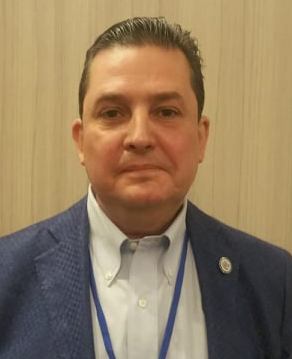Even as Guyana awaits the Caribbean Court of Justice’s (CCJ) ruling on the December 21st 2018 No Confidence Motion, the Organization of American States (OAS) has pledged its support for this country’s next elections and says it will be willing to help if requested by government.
“We are always very keen on strengthening the cooperation of Guyana and the Organization of American States…we have always been happy to participate in the general elections and we will do so once we receive an invitation,” Secretary for Strengthening Democracy at the OAS, Francisco Guerrero Aguirre, told Stabroek News last week, on the sidelines of the Institute of the Americas’ La Jolla, California Energy Conference.
Aguirre explained that traditionally Guyana has always been a close partner with the organization and the two have worked on many issues that fall under its four pillars- democracy, human rights, security and development and it is for that reason that the OAS will assist in the best way it can, if asked.
“Historically Guyana has always been a close partner with the organization in many of democratic terms, in terms of economic development, in terms of energy, in terms of security and the four main principles of the organization which are human rights, democracy, security and development the OAS will always be ready and open to collaborate with the Guyanese institutions,” he said.
“In general terms, Guyana is an active member of the international community the OAS is always ready to help, in particular, with the economic development of Guyana,” he added.
He pointed out that Guyana has shown the “will to strengthen the economic model” and that is something that the OAS will always help with.
Aguirre would not state what sort of support as he explained that the country is currently awaiting a ruling at the CCJ and the OAS waits on a state invitation and requests before discussing developments.
The OAS had an observer team here, headed by the former Foreign Minister of Belize Lisa Shoman, for the 2015 General and Regional Elections and had reported that they found no serious problems with the conduct of those elections.
However, the report had highlighted the sloth in elections results and had made a number of recommendations to speed up that process whenever elections are held. It is left to be seen if any of the recommendations were implemented.
In presenting the report, Shoman has said that while the Mission recognizes the Guyana Elections Commissions’ (GECOM’s) efforts to promote a peaceful atmosphere by sponsoring the signing of a Code of Conduct by all political parties, the delay in signing the Code and the lack of enforcement mechanisms stopped it from having any significant impact on the overall campaign.
“The OAS/EOM found the strident tone of the political debate leading up to Election Day, most regrettable, and therefore strongly recommends the introduction of a legal framework that promotes the celebration of elections based on positive political platforms that educate and benefit the Guyanese people in making choices, avoids aggressive personal and partisan rhetoric, and contains rapid and concrete sanctions for violating the same”, the OAS said.
And on the vexed question of the transmission of results, the OAS said that while the process in Guyana contains careful safeguards in order to boost the veracity and credibility of electoral results, the manual nature of the process is time-consuming and of necessity labour intensive. “Given the geographical and logistical challenges of Guyana, the Mission encourages GECOM to implement, as soon as possible a system of electronic tabulation of preliminary results for national elections. An alternative system of communication between presiding officers, returning officers and the GECOM secretariat would, at least promote a more timely provision of results and serve to (defuse) potential public tensions in future electoral processes”, the OAS EOM said.






